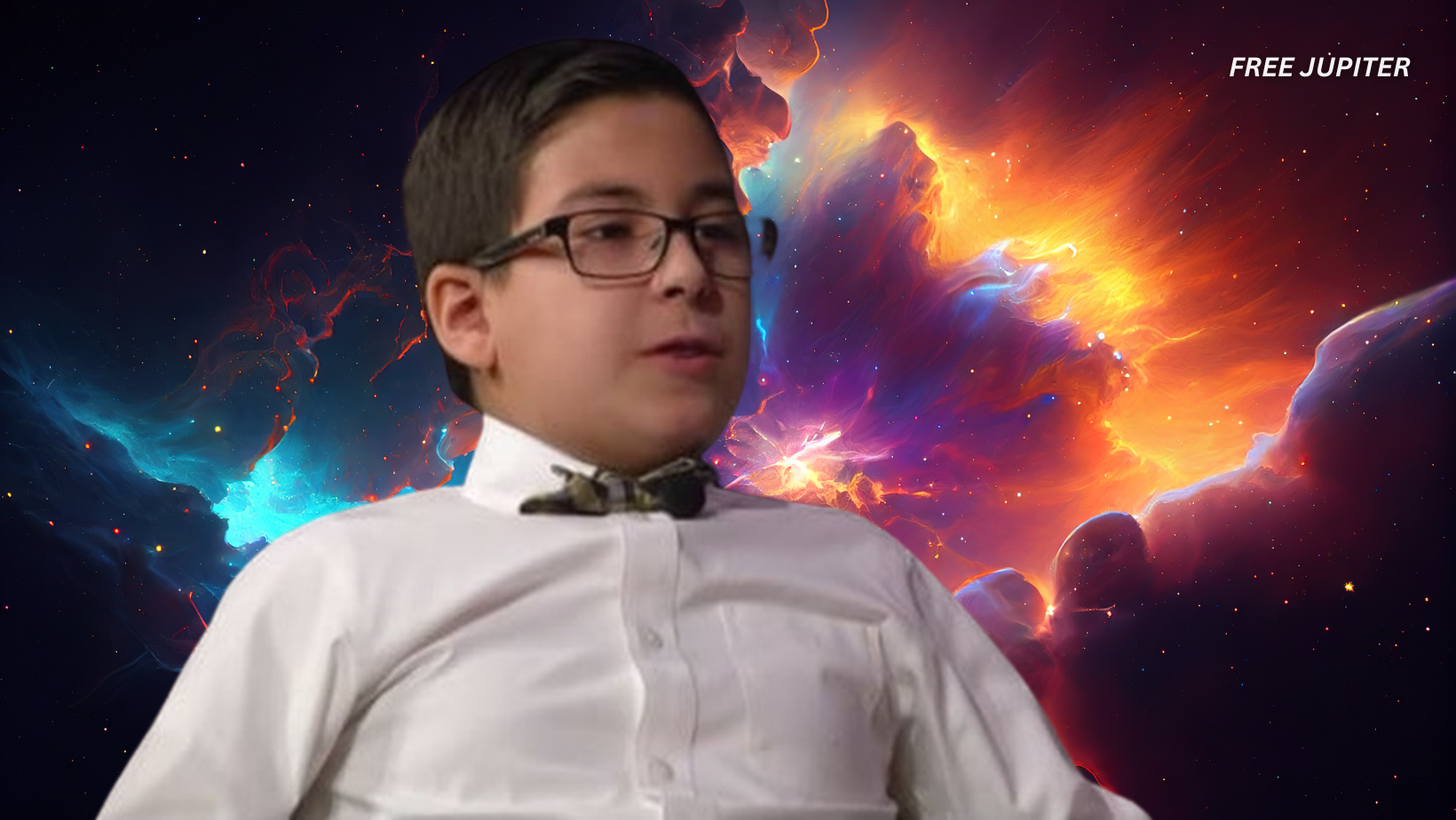In the never-ending quest to understand the origins of the cosmos, the intersection between science and spirituality has often sparked deep divisions. While many prominent figures in the scientific world lean toward a view of the universe that excludes any divine hand, one of the most vocal and widely respected voices in that arena—Stephen Hawking—made his stance crystal clear.
Hawking, a theoretical physicist celebrated for reshaping our understanding of black holes and the cosmos, held a firm atheistic view. In his writings, he explained that humanity once found comfort in attributing creation to a deity, but that modern science provides a far more compelling narrative. His exact sentiment was:
“Before we understood science, it was natural to believe that God created the universe, but now science offers a more convincing explanation. What I meant by ‘we would know the mind of God’ is we would know everything that God would know if there was a God—but there isn’t. I’m an atheist.”
While Hawking’s perspective resonates with many, especially those who emphasize empirical data and peer-reviewed theories, not everyone agrees. One challenger to this dominant view is not a seasoned professor or a Nobel laureate — but an 11-year-old with a brain wired for astrophysics and a soul steeped in spiritual conviction.
Meet William Maillis: A Young Mind with Big Ideas
William Maillis may be only a child by age, but his intellect and aspirations are anything but juvenile. The son of a Greek Orthodox priest, Maillis blends a firm belief in a higher power with an uncanny aptitude for scientific reasoning. His unusual abilities began manifesting before he even learned to walk. At just seven months old, he was speaking in complete sentences. By the time most children were still learning their colors, he was solving mathematical equations. At two, he tackled multiplication. By nine, he completed high school and shortly after became the youngest graduate of St. Petersburg College in Florida, earning national recognition.
According to psychologist Joanne Ruthsatz of Ohio State University, who has assessed child prodigies extensively, Maillis meets the strict criteria to be classified as a genuine genius.
Now aiming to become an astrophysicist, Maillis has a mission: to prove scientifically that a higher power—specifically God—was indeed responsible for the creation of the universe. And he has no qualms about going head-to-head with one of the greatest scientific minds of all time to argue his case.
A Young Theorist with a Logical Take
Unlike the typical abstract or philosophical arguments about God’s existence, William’s reasoning is rooted in physics and logic. In an interview, he explained that believing in a creator is not only reasonable—it’s actually the more logical conclusion when examining the origins of the universe.
He begins by addressing one of science’s most accepted facts: the universe is 13.8 billion years old. He then walks through a line of reasoning that leads him to conclude that the universe couldn’t have formed on its own.
Here’s how he breaks it down:
“We know the universe has an age, right? It’s 13.8 billion years old. That means there was a point when everything was condensed into a singularity—smaller than even a quark. Now, gravity is a constant force. If you jump off a building, you don’t wait 15 seconds before falling—you fall right away. So if gravity has always existed, and the singularity was always there, then the universe should be infinitely old. But it isn’t. It has a measurable age. That means the singularity had to come into being at some point. But things can’t cause themselves to exist, because to do so, they would already have to exist. That’s a logical impossibility. So something else had to create the singularity—and that something is what we call God.”
His line of reasoning revolves around first principles—namely, that matter and energy cannot simply appear out of nowhere and that a timeless, immaterial force must have sparked the first domino.
Read more: Zodiac Signs That Will Manifest Abundance And Miracles In June
Faith Meets Physics in a Cosmic Thought Experiment
Maillis is not arguing that God contradicts science. On the contrary, he’s saying that true scientific inquiry should be open to the possibility of a divine origin, especially when logical inconsistencies arise in purely material explanations.
His theory doesn’t hinge on scripture or religious dogma. It emerges instead from logical deduction grounded in astrophysics and cosmology. According to William, dismissing God outright because the concept doesn’t fit neatly within current models of physics is not only premature—it’s intellectually limiting.
The young thinker isn’t alone in this sentiment. Throughout history, many scientists have operated from a belief in a higher power, including Isaac Newton, Johannes Kepler, and even Albert Einstein, who once said, “God does not play dice with the universe.”
While those interpretations of “God” varied—ranging from a personal deity to a more abstract cosmic order—the underlying notion remained: science and spirituality are not inherently at odds.
What Sets William Apart?
It’s one thing to have strong convictions; it’s another to express them in a way that resonates with both scientists and laypeople. What makes William’s approach unique is that he speaks with the clarity of a scientist but the curiosity of a child. There’s no condescension, no sweeping proclamations—just a desire to understand the truth, wherever it may lead.
That mindset is likely what’s earning him attention in both academic and spiritual circles. Rather than merely reacting to atheistic views, he’s proactively constructing a case for theism rooted in cosmological inquiry. For someone his age—or any age, really—that’s a rare combination.
A New Voice in a Timeless Debate
William’s theory won’t settle the debate about the existence of God, nor does he expect it to. But it does introduce a compelling voice into a conversation that has spanned centuries.
His willingness to challenge conventional wisdom—even that of a scientific icon like Stephen Hawking—demonstrates not only intellectual courage but also the timeless human drive to seek meaning in the vast unknown.
Whether one agrees with his conclusions or not, it’s hard not to be intrigued by the sheer novelty of his perspective. A child genius who bridges logic and faith with eloquence and precision? That’s a headline few expected to read.
Read more: New Dinosaur Discovery May Be the ‘Missing Piece’ in the Cancer Cure Puzzle
Looking Forward: What’s Next for the Prodigy?
With his sights set on a career in astrophysics, William’s future is wide open. He plans to pursue advanced studies in physics and cosmology, all while continuing to refine and explore his theory about the universe’s divine origins. He hopes to one day stand at the frontier of scientific discovery—armed with telescopes, equations, and perhaps, a bit of faith.
As he continues to grow, so too will the spotlight. The scientific community will be watching closely to see how his ideas evolve and how they hold up under scrutiny. But if the past is any indicator, Maillis has the mental firepower—and the philosophical poise—to keep contributing meaningfully to the world’s most profound questions.
Conclusion: An Unlikely Challenger with a Cosmic Mission
In a field where data reigns and skepticism is often the default stance, William Maillis offers a refreshingly unconventional take. He doesn’t dismiss science—in fact, he embraces it fully. But he also makes space for the possibility that science, in its quest to explain everything, may have overlooked a crucial player: the unobservable force behind existence itself.
Whether or not one accepts his view, William is an undeniable force to be reckoned with. And it’s clear we’ll be hearing much more from this young astrophysicist-in-the-making as he continues his journey into the great unknown.










